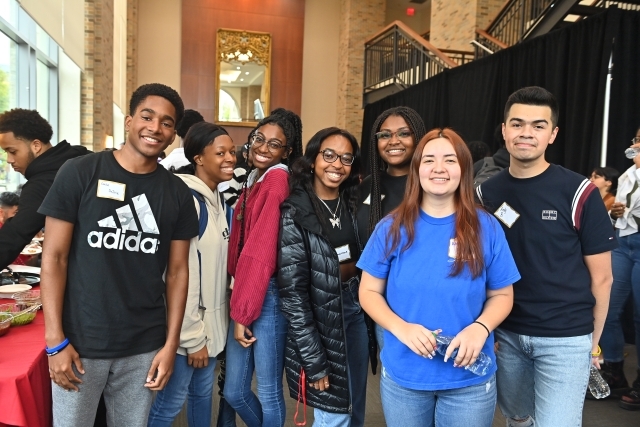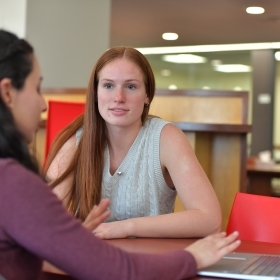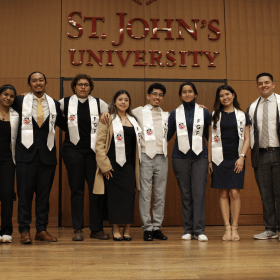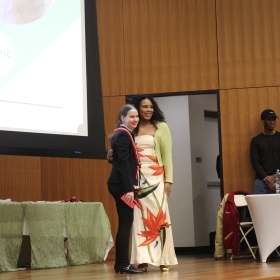Enhance Your College Success with Peer Mentorship

The first year of college can be both exciting and challenging. It can take time to adjust to the new environment, meet new people, and navigate academic expectations; that’s where mentor programs come in. Having a mentor can significantly impact your experience and provide plenty of long-term benefits beyond your college years.
I. Who are peer mentors?
Peer mentors are current college students who provide guidance, support, and advice to their peers. They draw from their own experiences to help others navigate similar situations, offering insights and encouragement to foster personal and professional growth. Peer mentors typically receive training to effectively assist their mentees in achieving their goals, acting as valuable resources for those seeking direction.
The Role of a Peer Mentor
Mentors provide a range of services to support students, such as:
- Academic support: Mentors may help students with study skills, time management, and understanding course material.
- Career guidance: Mentors may provide information about career paths, internships, and job opportunities.
- Social support: Mentors may help students feel connected to their college community and provide advice on navigating social situations and building relationships.
- Personal support: Mentors may offer guidance on personal issues, such as managing stress, dealing with family or relationship problems, and finding resources for mental health support.
II. What is a college peer mentor program?
College mentoring programs connect incoming students with experienced mentors who offer guidance, advice, and support. Current college students often hold mentor positions; however, mentors can also be faculty members, alumni, administrators, or staff.
What does a peer mentor program look like?
Peer mentor programs involve meeting with a mentor on a regular basis. This can be done one-on-one or in group settings. These meetings take place during the academic year.
The frequency and format of meetings may vary depending on the program and the student’s needs. In addition to mentorship, many programs offer opportunities for students to engage in social activities and events.
St. John’s University provides a range of peer mentoring initiatives to support students in navigating the challenges throughout college. Discover more about the services offered in each of these programs below:
- Project AIM is a peer-mentoring program that promotes the success of first-year and second-year international students.
- The R.I.S.E Network is a scholar’s empowerment network that provides Black and Latinx first-year students with skill-based development, support, and opportunities to enhance their overall academic career at St. John's University.
- Aspire is a mentoring program connecting alumni with juniors beginning their professional journey.
- E.P.I.C. (Establish relationships, Promote possibilities, Impact direction, and Confirm next steps) is a community where first-year St. John’s students learn from the guidance and wisdom of sophomores, juniors, or seniors who have successfully navigated their first year in college.
II. What is the power of mentoring?
Uncovering Mentor and Mentee Benefits
While mentorship programs are made to support mentees in their college journey and beyond, both mentees and their mentors can significantly benefit from the experience.
Mentor benefits
Increased confidence: Mentoring can be a rewarding experience for mentors who enjoy helping others and seeing their mentees succeed.
Skill development: Mentors can enhance their skills and knowledge by teaching and coaching others.
Leadership development: Mentors can develop their leadership skills by guiding and motivating others.
Networking: Mentees can expand their professional networks by connecting with their mentors and other professionals in their mentor’s industry.
New perspectives: Mentors can gain fresh perspectives and insights from their mentees, who may have different backgrounds, experiences, and perspectives.
Mentee benefits
Increased confidence: Mentees can develop greater confidence in their abilities through guidance and feedback.
Skill development: Mentees can learn new skills and knowledge from mentors with more experience and expertise in a particular field or industry.
Career advancement: Mentors can provide valuable advice and networking opportunities to help mentees advance.
New perspectives: Mentees can gain a broader understanding of their field or industry through exposure to their mentor’s experiences and viewpoints.
IV. The Impact of Peer Mentorship
St. John’s International Student Share the Power of Peer Mentoring
To gain more insight into the impact of mentoring in college, we spoke to a handful of international students involved in the St. John’s Project AIM program.
What are the long-term benefits of mentoring?
Peer mentoring programs can improve your college experience and lead you to career success. Besides improved career outcomes, the potential benefits of such programs include greater overall job satisfaction, increased personal growth, and expanded professional networks.
Below are several intriguing studies and collected data that illustrate the impact of mentoring in today’s workplace:
- Together Mentoring Platform conducted a customer case study with Randstad, a Dutch multinational human resource consulting firm, and found that “participation in a mentoring program correlates to a 49 percent reduction in employee turnover.”
- In a 2020 article by Vistage, among the 1,348 chief executive officers (CEO) surveyed in a Vistage CEO Confidence Index survey, “86 percent agreed that mentors have been a critical part of their career accomplishments.”
- A five-year study by Gartner found that “25 percent of the 1,000 surveyed employees who enrolled in a mentorship program had a salary grade change and got promotions earlier than those who did not participate in the program.”








